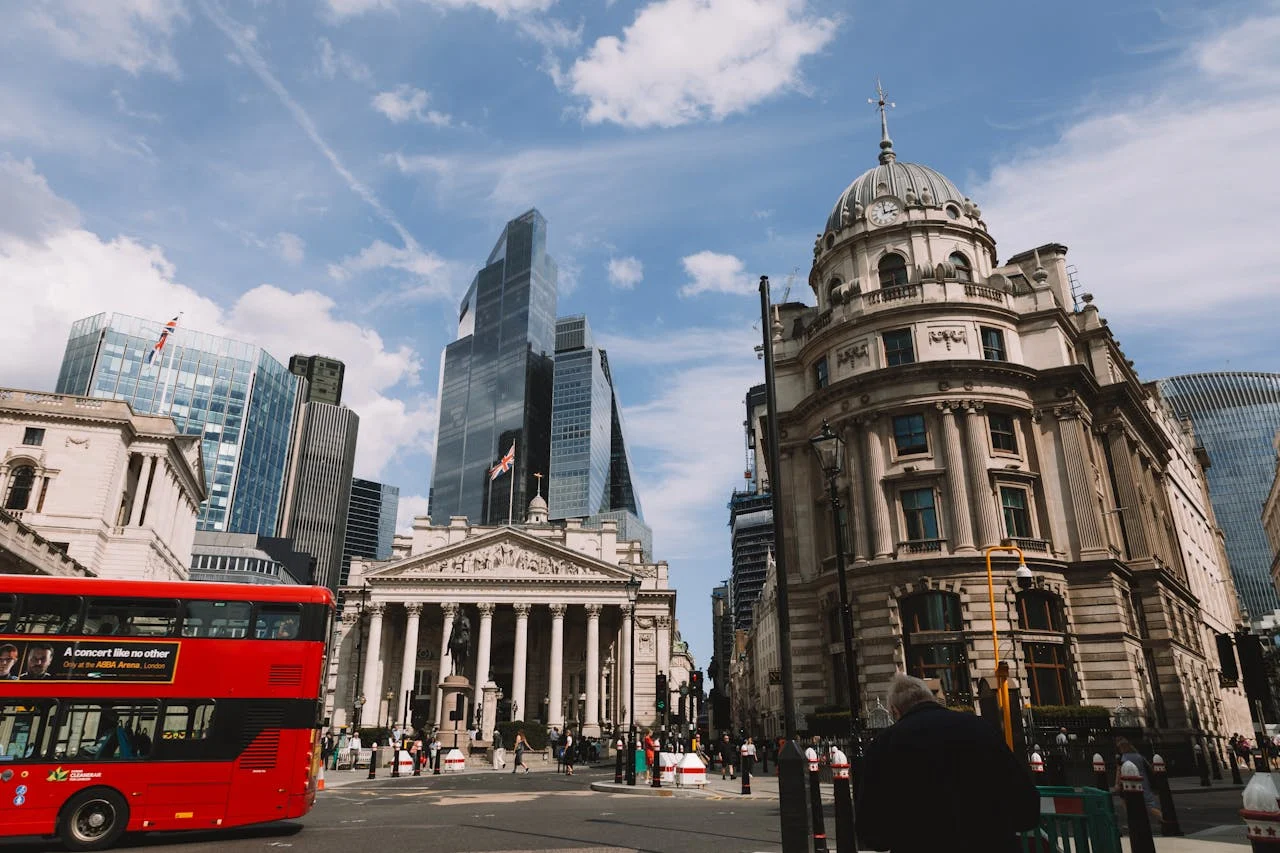The UK’s inflation rate unexpectedly rose to 3.5% in April 2025, up from 3.2% in March, marking a 15-month high. Are hopes for a reduction in interest rates dashed – or could there be more to the story? Let’s find out what’s driving the UK inflation spike.
What’s Fuelling the Rise in Inflation?
The main culprits were largely seasonal and isolated:
- Water bills jumped a staggering 26.1%, just as people begin using more with warmer weather.
- Energy bills rose too, thanks to April’s price cap reset—even though wholesale energy prices are actually falling.
- Airfares surged due to Easter holiday travel, a one-off spike more than a long-term trend.
- Vehicle tax hikes also played a role, with a significant increase in Vehicle Excise Duty (VED) introduced in April contributing to the inflation rise.
These aren’t exactly the core cost-of-living issues that suggest sustained inflationary pressure. And when you strip out energy and food — what economists call core inflation — that figure came in at 3.8%, again a touch above expectations.
On the services front (something the Bank of England watches closely), inflation rose to 5.9%, up from 5.4% in March. That’s where some eyebrows are being raised.
What Does the Bank of England Think?

The Bank of England, where internal debate among policymakers is intensifying amid signs that inflation’s decline is faltering.
Bank of England Chief Economist Huw Pill has warned that inflation’s descent is “stuttering,” and divisions are growing within the Monetary Policy Committee (MPC). Some members are urging caution on cuts, while others suggest holding firm or going ahead with planned reductions.
Markets, which had previously priced in two cuts in 2024 — June and November — are now hedging, expecting perhaps only one.
But economists tell a different story.
Economists Still Expect Cuts
Institutions like ING and Deutsche Bank remain optimistic about further cuts:
- James Smith, ING’s UK economist, expects inflation to fall back this summer, keeping the Bank of England on course for quarterly cuts into 2026.
- Deutsche Bank goes even further, projecting three cuts this year alone.
Their rationale? The inflation bump appears to be a blip, not a trend. They say it’s fuelled by Easter travel, water bills, and other anomalies, not fundamental wage or demand pressure.
What Was the Market Reaction to Inflation Spike?

Markets shift: Inflation surprise sends sterling and gilt yields higher, hinting at a ‘higher for longer’ rate outlook.
Markets reacted quickly:
- The pound spiked to $1.347, its highest since 2022, before easing back.
- Two-year gilts rose to 4.08%, indicating that investors are bracing for a “higher for longer” rate scenario.
Naturally, politicians had something to say. Rachel Reeves called the inflation figures “disappointing,” though less severe than under previous governments. Meanwhile, opposition critics blamed Labour policies, like national insurance hikes and minimum wage increases for fuelling inflation.
For context, UK inflation remains higher than nearly all other major Western economies, second only to the Netherlands.
Will Inflation Stay High?
According to the Bank of England’s own Andrew Bailey, this recent rise is largely temporary, driven by factors not directly tied to the underlying economy. He believes core service prices will begin to ease in the coming months.
In fact, the Bank noted that Trump’s tariffs — if reintroduced — would likely be deflationary, dampening demand rather than stoking prices.
However, uncertainty remains high. From the Ukraine conflict to post-COVID market distortions, we are still navigating a uniquely volatile economic landscape.
Bailey advises watching carefully for:
- Wage increases that could create second-round effects on inflation.
- Demand drops that might pull inflation back down.
On that note, the latest figures show:
- Wage growth slowing to 5.6% (from 5.9%).
- Unemployment inching up to 4.5%.
Still, it’s too early to call this a lasting trend. The economists say “no,” the Bank says “we’re not sure,” and everyone else is waiting to see.
What It Means for Property Investors
For international and UK property investors, the key takeaway is this: rate cuts are paused, not cancelled.
Yes, mortgage rates are likely to remain elevated in the short term, meaning limited relief for buyers and refinancers. But the long-term trajectory still points towards easing, possibly with two cuts by year-end.
This isn’t a market crash — it’s a market pause.
If you’re currently saving to buy a house, you mind find some useful tips in our recent articles and guides:
- How to Get a Mortgage in the UK as an Expat
- Is Now the Right Time to Fix Your Mortgage
- The Expat Property Playbook: 10 Steps to 10k per Month with UK Property

With 32 years’ experience in UK property investment, Stuart helps expatriates worldwide source and manage high-yield properties with ease and confidence. As founder of APW, he delivers a seamless, end-to-end service—from financing to management—removing stress and ensuring clarity at every step. Whether it’s buy-to-let, HMOs, student or holiday properties, Stuart prioritises profitability, tax efficiency, and long-term peace of mind.
